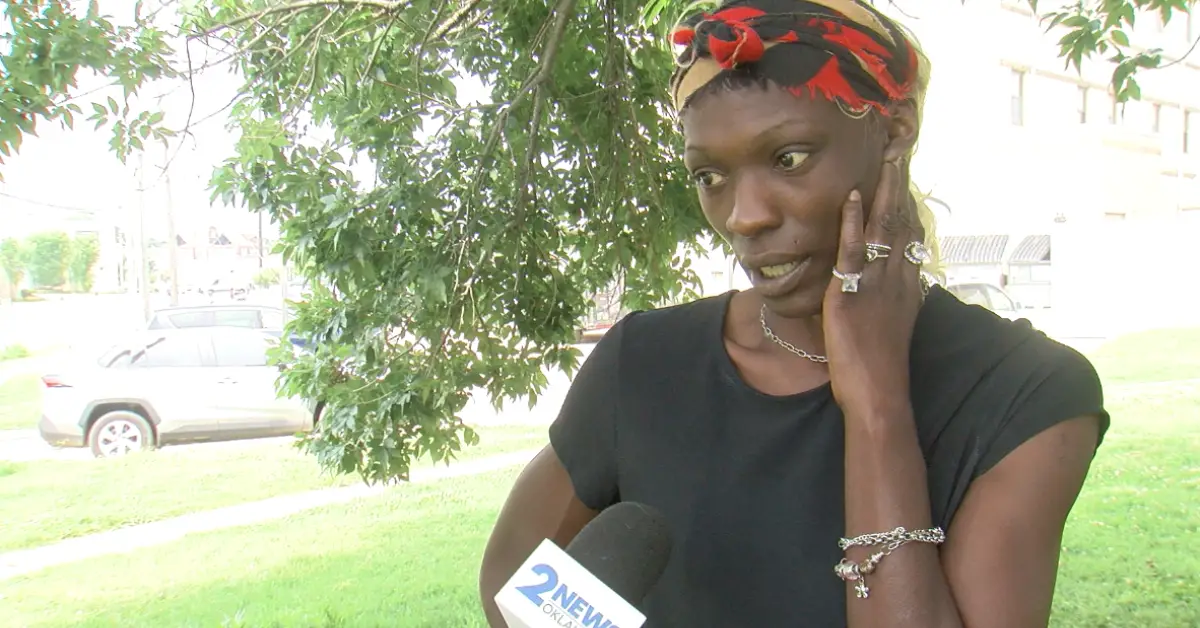The need for affordable housing has become more critical, as increasing numbers of people face the threat of homelessness. A particularly heartfelt expression came from a woman who, in an emotional moment, shared her fear of being left without a home, saying she would “rather be dead” than live on the streets. This statement resonates deeply with many, as the lack of affordable housing has reached a crisis point in various parts of the country.
The story behind this powerful statement underscores the daily struggles faced by individuals and families who are one paycheck away from losing their homes. Across the nation, housing prices have soared, while wages have failed to keep up. Many working-class people, especially in cities, are finding it nearly impossible to afford rent, let alone buy a home. The increasing gap between income and housing costs is pushing people to the brink, making them vulnerable to homelessness.
In some areas, rent prices have risen dramatically, particularly in urban centers where demand for housing is high. As a result, many tenants are forced to spend a large portion of their income on rent, often sacrificing other necessities like food and healthcare. With little room to save for emergencies or future stability, they live in constant fear of eviction.
The emotional plea from the woman, who shared her deep despair, highlights a grim reality faced by many. “I would rather be dead than live on the streets,” she said, capturing the desperation that many feel when they see no way out. For her, and for countless others, the prospect of becoming homeless is a nightmare that seems inescapable. Her words reflect a heartbreaking reality: without affordable housing options, some individuals are left with no hope for the future.
This situation is not limited to just a few cities or regions but is a nationwide issue. Across the United States, the shortage of affordable housing is reaching alarming levels. According to a report by the National Low Income Housing Coalition, there is a deficit of more than 7 million affordable rental homes for extremely low-income renters. This gap between supply and demand continues to grow, leaving more people at risk of homelessness.
The issue of affordable housing is not just about providing shelter—it’s also about ensuring that people have the stability they need to thrive. Housing is a basic human need, and without it, people cannot fully engage in work, education, or community life. Homelessness is linked to a range of serious issues, including poor physical and mental health, unemployment, and a lack of access to essential services. The cycle of poverty can be hard to break without a stable place to live.
The need for affordable housing is particularly urgent for certain groups, including low-income families, seniors, and people with disabilities. These populations often face additional challenges in finding suitable housing, such as discrimination, lack of accessible units, and fixed incomes that make it difficult to afford market-rate rents.
Local governments, housing advocates, and community organizations are working hard to address the housing crisis. Some cities are implementing rent control measures and offering incentives to developers to build affordable housing. Others are exploring innovative solutions, such as converting vacant properties into affordable apartments or providing housing subsidies to help people stay in their homes.
Despite these efforts, the scale of the problem continues to outpace the solutions. The affordable housing shortage is a multifaceted issue that requires a long-term commitment from all levels of government. Experts agree that more funding is needed for affordable housing construction, as well as stronger protections for renters to prevent evictions and displacement.
In addition to government action, there is a growing recognition that the private sector can play a role in addressing the housing crisis. Developers and investors are increasingly being encouraged to include affordable housing in their projects, and some companies are stepping up to help by donating funds or resources to housing initiatives.
However, these efforts are often not enough to meet the overwhelming demand for affordable housing. The woman’s statement—”I would rather be dead”—is a stark reminder of the urgency of the situation. For many people, the dream of stable, affordable housing is slipping further out of reach, and they are left with a sense of helplessness that can lead to devastating consequences.
As the affordable housing crisis deepens, it is clear that more needs to be done to address the root causes of homelessness. Housing should not be a privilege for the few but a basic right for all. Until that is achieved, the voices of people like the woman who expressed her fear will continue to echo, reminding us of the urgent need for change.




